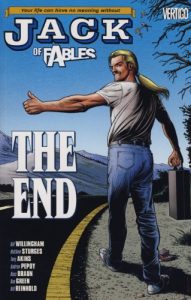 The final volume of Jack of Fables is hard to review for two reasons. If I’m being honest with myself, the series had outstayed its welcome since probably the big crossover, or at the very latest whichever book after that involved the dragon. So for my perspective: I’m glad it’s over. But that’s an opinion, not a review.
The final volume of Jack of Fables is hard to review for two reasons. If I’m being honest with myself, the series had outstayed its welcome since probably the big crossover, or at the very latest whichever book after that involved the dragon. So for my perspective: I’m glad it’s over. But that’s an opinion, not a review.
Reason one why The End is hard to review: because it’s not only the last entry in a series, but also the ninth. So, spoilers galore. This is a common problem that I have, and the lesson I suppose is to read more standalone stories?
Reason two why it’s hard to review: because anything I actually would be willing to say is already covered by the title itself. This book right here? Delivers on its promise. So, what else even would there be to say? Was it satisfying? Since I was already done with these characters, one of them probably before he ever existed[1], it’s hard to answer that in true fairness. But yes, I’m satisfied.
….except for the perpetual Walter Mitty miniaturized blue ox. I never got that at all. But I’m glad I will never have to worry about it again, at least!
[1] Jack Frost
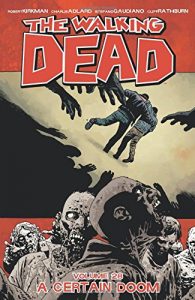 Remember that time when people were in danger from zombies instead of each other? I mean, you don’t, because that was like 15 books ago, and nobody but me has read anywhere near that far in the Walking Dead. The good news is, if you jumped back into the series with
Remember that time when people were in danger from zombies instead of each other? I mean, you don’t, because that was like 15 books ago, and nobody but me has read anywhere near that far in the Walking Dead. The good news is, if you jumped back into the series with 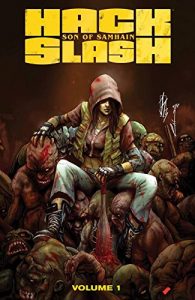 After Tim Seeley
After Tim Seeley 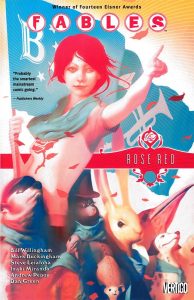 The big plot of
The big plot of 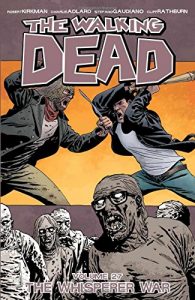 Here are the problems with
Here are the problems with 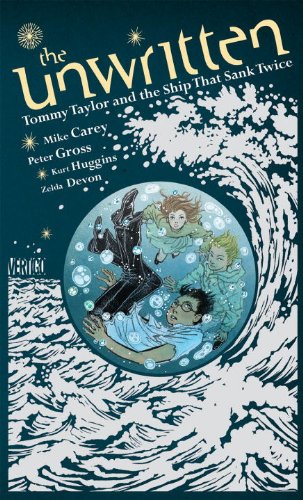 I’ve been reading these Tommy Taylor books long enough to put them on the same level as
I’ve been reading these Tommy Taylor books long enough to put them on the same level as 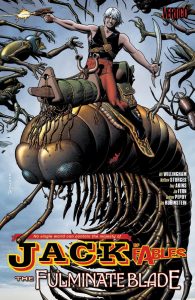 So, this is the other Jack of Fables. After
So, this is the other Jack of Fables. After 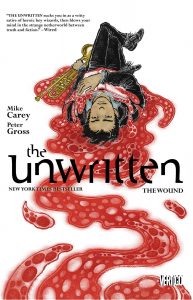 To actually review this, I need to go back and read
To actually review this, I need to go back and read 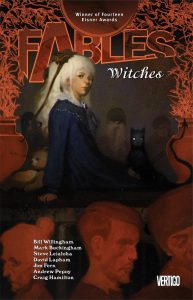 Moving: awesome for getting to live in a place you like better than the previous place you lived, but terrible for not falling way way behind on book series that you are reading. Case in point: The new Fables collection picks up right after they banded together to save all of creation that had been threatened by developments from the side series about Jack Horner, and that is not a record of what had actually been going on in the main continuity, which means they are resuming a plotline I last read about three years ago. Awesome.
Moving: awesome for getting to live in a place you like better than the previous place you lived, but terrible for not falling way way behind on book series that you are reading. Case in point: The new Fables collection picks up right after they banded together to save all of creation that had been threatened by developments from the side series about Jack Horner, and that is not a record of what had actually been going on in the main continuity, which means they are resuming a plotline I last read about three years ago. Awesome.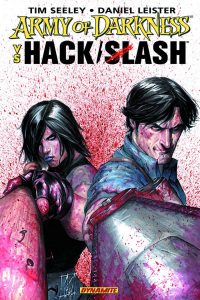 As of this writing, my new job and then the world’s pre-eminent boardgame convention have kept me too busy and/or access-blocked to do much in the way of reviewing. Well, no, that’s not right. As you can see, I’ve been reviewing, I just haven’t been posting them. The previous one, I think about a movie I saw a week or two ago, has been sitting in my inbox for days waiting for me to punch up the HTML and then post it. On the (let’s say) bright side, I haven’t had time to fall farther behind, so I’ve got that going for me at least.
As of this writing, my new job and then the world’s pre-eminent boardgame convention have kept me too busy and/or access-blocked to do much in the way of reviewing. Well, no, that’s not right. As you can see, I’ve been reviewing, I just haven’t been posting them. The previous one, I think about a movie I saw a week or two ago, has been sitting in my inbox for days waiting for me to punch up the HTML and then post it. On the (let’s say) bright side, I haven’t had time to fall farther behind, so I’ve got that going for me at least.